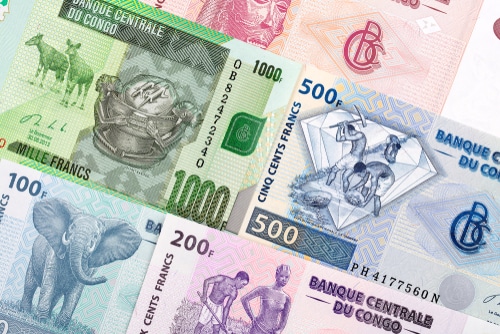The Congolese Franc (CDF) is the official currency of the Democratic Republic of Congo (DRC), a nation rich in history, culture, and natural resources. Though less internationally recognized than other currencies, the Congolese Franc plays a vital role in the daily lives of millions of Congolese people. Whether you’re a traveler, a business leader, or a member of the Congolese diaspora looking to support loved ones back home, understanding this currency is crucial.
This blog explores the key aspects of the Congolese Franc, from its history and role in the economy to practical tips for currency exchange and transferring money to the DRC.
What is the Congolese Franc?
The Congolese Franc (abbreviated as CDF) is the official currency of the Democratic Republic of Congo. It is issued by the Central Bank of Congo, which regulates its circulation and oversees monetary policy in the country. The Franc is further divided into 100 centimes, although coins in smaller denominations are rarely used in daily transactions due to inflation.
Currency Symbols and Denominations
- Symbol: FC
- ISO Code: CDF
- Banknotes: Common denominations include 500, 1,000, 5,000, 10,000, and 20,000 francs.
- Coins: Coins are available, but they are not widely circulated or used for everyday transactions.
It’s important to note that the Congolese Franc serves as a cash-heavy economy, with most transactions carried out in physical currency. Access to digital banking and electronic payments is limited, particularly in rural areas.
A Brief History of the Congolese Franc
The origins of the Congolese Franc date back to 1887 when the Belgian Congo began using the Congolese Franc as its monetary system. Its introduction replaced the currency systems previously tied to Belgian accounts. Over the years, the currency has undergone multiple reforms due to political and economic instability in the region.
The Franc, as we know it today, was reintroduced in 1998, replacing the Zaire (the previous currency) after the regime change and the renaming of the country to the Democratic Republic of Congo. Even today, the legacy of political and economic challenges continues to influence the Franc’s value and its important role in the nation’s economy.
The Role of the Congolese Franc in Everyday Life
Local Economy
The Congolese Franc is essential to the functioning of the DRC’s local economy. It is used for everything, from buying groceries at bustling markets to paying for utilities. However, in some sectors, the use of US dollars is common, particularly for larger transactions like rent or international trade. This dual-currency economy presents unique challenges, including fluctuating exchange rates and price disparities.
Informal Markets
A significant portion of the Congolese economy operates within the informal sector, where transactions are often conducted in local currency. From small-scale vendors to transportation providers, the Congolese Franc is used widely as cash exchanges dominate.
Challenges and Inflation
One of the biggest hurdles facing the Congolese Franc is inflation. Over the years, the Franc has experienced periods of significant devaluation, making it challenging for families to maintain their purchasing power. The Central Bank of Congo continues to implement measures to stabilize the currency and improve the nation’s economy.
For those transferring money to the DRC, keeping an eye on exchange rates is vital to ensure the best value for funds sent to loved ones.
Tips for Currency Exchange in the DRC
When handling the Congolese Franc, it’s important to keep a few considerations in mind to avoid unnecessary challenges.
1. Bring Smaller Denominations
Due to inflation and cash-based transactions, smaller denominations of CDF banknotes are essential for day-to-day spending. Vendors and stores often struggle to provide change for higher denominations.
2. Exchange Currency at Reliable Locations
Major cities like Kinshasa and Lubumbashi have official currency exchange locations where you can safely convert your money. Avoid exchanging large sums of cash in informal settings as this can expose you to fraud or unfair rates.
3. Know the Exchange Rate
Stay updated on the current exchange rates. Central Bank rates may differ from the rates offered in informal markets, so understanding this discrepancy can help you make an informed decision.
Sending Money to the Democratic Republic of Congo
For members of the Congolese diaspora, sending money back home is a meaningful way to stay connected and provide financial support for their families. Services like Remitly make it easy to send funds securely and affordably to loved ones in the DRC.
Why Choose Remitly?
- Transparent Fees: With no hidden fees, you can transfer money with confidence.
- Multiple Delivery Methods: Choose from bank deposits, cash pickup, or mobile wallets.
- Real-Time Updates: Track your transfer every step of the way.
- Exchange Rate Benefits: Get competitive rates to ensure your loved ones receive more.
Sending money through Remitly is simple, fast, and trustworthy. Whether it’s helping cover household expenses or funding an educational pursuit, Remitly connects you to your family back home.
Interesting Facts About the Congolese Franc
- The Congolese Franc is often referred to locally as “likuta,” which was also the name of a former currency subdivision.
- Some communities in the DRC use barter systems alongside cash transactions, which is a testament to the creativity and resourcefulness of the people.
- Despite challenges, the Franc remains a symbol of Congolese identity and resilience.
Investing in the Future of the Congolese Franc
The Congolese Franc stands as a reflection of the DRC’s history, present, and aspirations for the future. While it faces unique challenges, the dedication and resilience of the Congolese people provide hope that the Franc will continue to play a key role in shaping economic stability and growth.
Support Your Loved Ones Today
Sending money through Remitly is one of the easiest ways to help your loved ones effectively manage their finances in the DRC. Sign up today and experience a safer, simpler, and more affordable way to transfer funds using competitive exchange rates and seamless delivery options.
